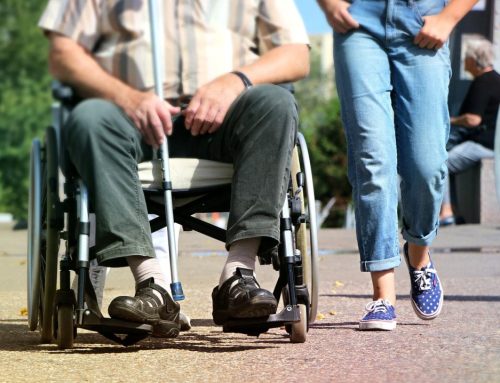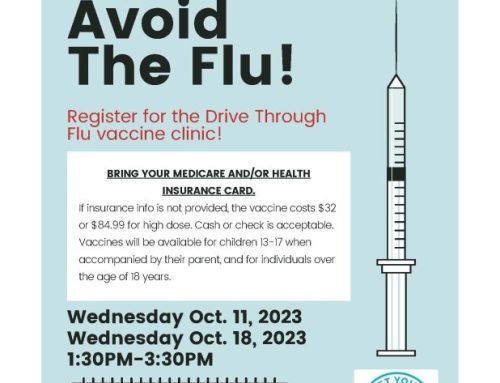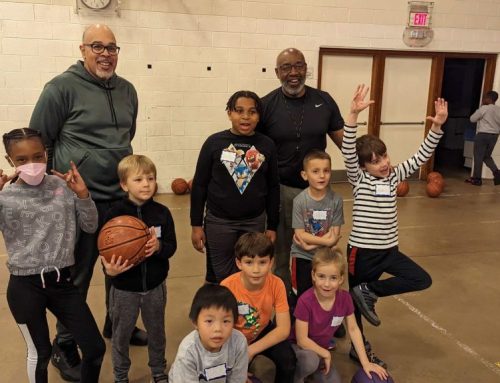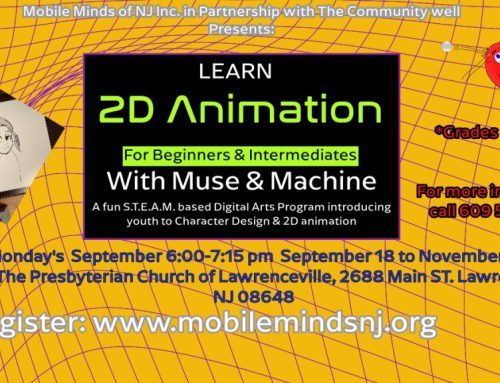Everywhere you go these days, it seems, you encounter a magazine article or TV news story about how to live a healthy lifestyle amidst the busy pace of modern life. Here are just a few examples from actual magazine and web articles: “How to Live a Healthy Lifestyle in 12 Simple Steps;” “A 20-Minute Exercise Plan for People Too Busy to Work Out;” “Healthy Family Meals in Under 30 Minutes!”
We know what it’s like: there are so many temptations against wellness that spring from the ready availability of high-fat, high-salt processed foods; long hours devoted to the job, always connected via an electronic tether; and pressure on family life in the typical two wage-earner household. And the solutions are pretty straightforward: find time to exercise; eat a healthy, balanced diet; get regular checkups; do things to reduce stress. We all get it.
But there’s one thing people usually don’t get, one glaring omission in all but a very few of these articles about healthy living: giving back.In the last decade or so the effects of volunteerism have been the subject of many scientific studies, and the evidence is overwhelming: volunteering is good for your health. It decreases the risk of depression; reduces stress and enhances mental health; enables connectedness to others; and will literally increase your lifespan. If you don’t believe me, look it up!
That simple analysis has spurred a conversation and collaboration among the leaders of three area organizations providing health-enhancing programs: the YMCA of Princeton; the YMCA of the Capital Area; and The Community Well, a community center created by the Presbyterian Church of Lawrenceville. We began by exploring the question: how might we think of our mission, in addition to the health-enhancing programs we offer, as “helping people helppeople?”
What would it look like if, in addition to providing Pilates, yoga, chess classes…we provided a means and an encouragement for those accessing our services to get involved in service to the community? How could we share staff and infrastructure across our organizations to accomplish this?
Our initial sense is that we ought to begin moving toward that vision by beginning with families. We are testing out a thesis that seems clear to me based on the anecdotal evidence I observe in my work as a Pastor—and that all three of us have observed in our respective capacities. Families are terribly busy, often doing activities with and for their kids that will enhance their chances of success in life: soccer, ballet, piano lessons. They often seem to be on a treadmill that offers little time and energy for anything outside of what benefits their family. And I detect at times a gnawing sense that such families feel something is missing: helping others.
When I was a kid, one of my most vivid memories, one that offered a powerful and tangible example of our family’s values, was the simple act of delivering turkeys at Thanksgiving to people in need in our community. I went with my mother to the door; I gave the box of food to the woman who answered the door. I see this same kind of teaching happen when, for example, one of our families delivers home communion—as a whole family—to a shut-in member of the church. What parents do in a family has a very profound teaching effect on their children.
And so for us the question is: how can we build an infrastructure that makes it easy for people accessing our services to help people? What are the programs and means? And how do we do that so that the thinking they are well-off don’t approach such service out of noblesse oblige toward the “less fortunate,” but rather elbow-to-elbow with people and families who are different: people of differing racial, economic and cultural backgrounds, connecting to each other by getting involved in the community? How might we build community, across lines of diversity, through involving people inthe community?
We would love to hear from you about this vision. Do you see the need? If you are part of a family with younger children, what do you think of the anecdotal analysis presented here? We’d love to hear from you, via the comments section below.
Jeff Vamos is the Pastor/Head of Staff at the Presbyterian Church of Lawrenceville.
Kate Bech is the CEO of the YMCA of Princeton
Samuel Frisby is the CEO of the YMCA of the Capital Area





